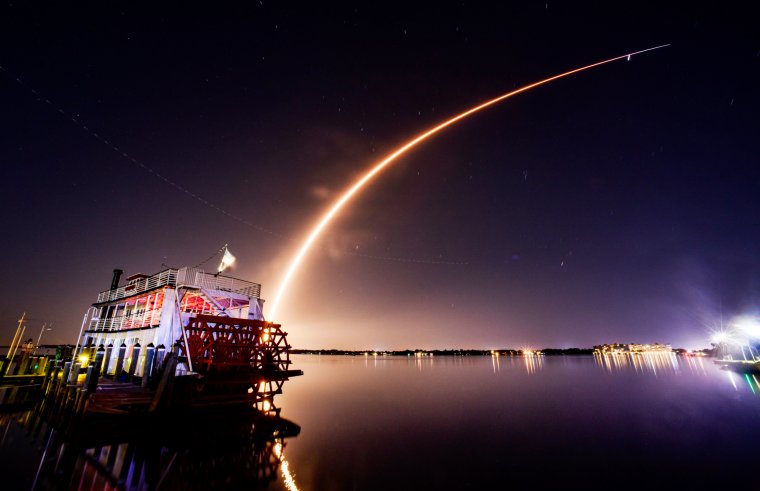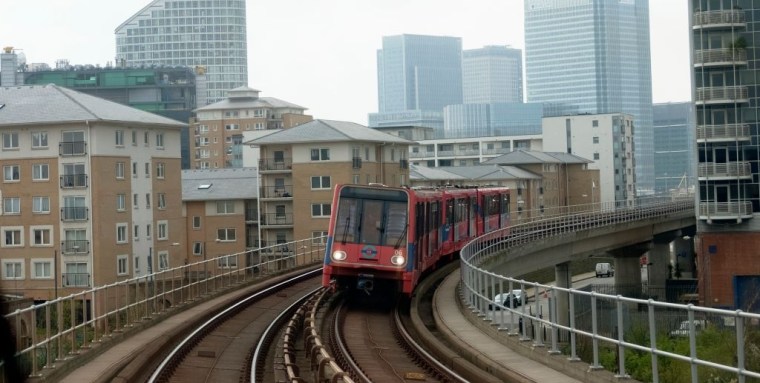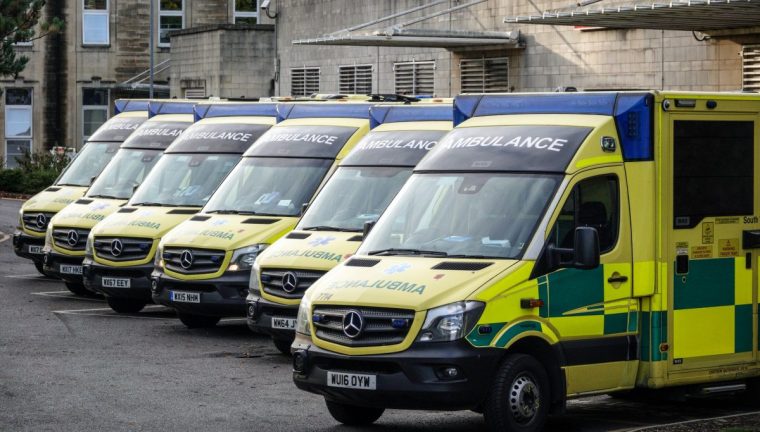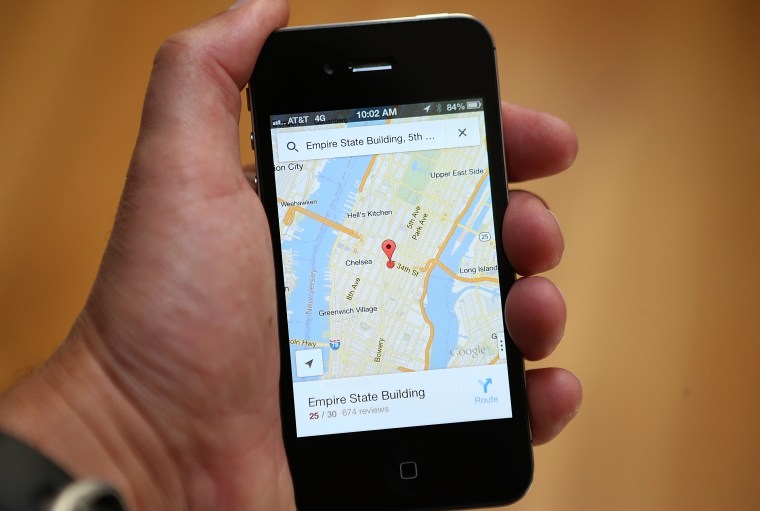Satellites are rarely discussed but underpin modern life. Disruption could be deadly
Your phone’s map stops refreshing. Buses and trains are suspended. Flights are grounded.
Ambulance services can’t function properly and patients are left without urgent care.
News broadcasts are disrupted, as is financial trading, leading to turbulence in the global stock market.
After a few days, the entire power grid goes down.
Experts warn that this is an extreme scenario – but not out of the realms of possibility.
At the touch of a Russian button, a little-discussed but integral part of the UK’s infrastructure could be tampered with: satellites.
An outage of systems, from malicious attack or technical malfunction, could bring society to a halt and cost the economy.
The UK has already seen the effects of cyber and technology disruption, from the Heathrow power outage which grounded flights, to NHS cyber attacks which disrupted healthcare, to high street retailer M&S losing £300m in an ongoing ransomware attack.
UK is ‘dependent’ on satellites
Modern British life is built on signals from satellites, which circle 20,000 km above the Earth and connect with devices on land to tell them where they are and what time it is.
Satellite data enable maps on mobile phones and in cars to work, tells ambulance services which vehicles can most quickly reach a patient and how they should get there, and facilitates global financial traders by helping to track commodities and monitor markets.
Global navigation satellite systems (GNSS) contribute £13.2bn to the British economy each year, a government assessment found, mostly from the emergency services and roads.

The UK’s chief scientific advisers warned in 2018 that “many aspects of the modern world have become dependent” on GNSS, which are “deeply embedded in countless systems and applications”.
Despite our reliance on them, satellites and their signals are vulnerable, both to accidental damage and malicious attacks, and there is poor awareness of our dependency on the systems, the scientific advisers wrote.
How Putin could knock out our satellites
GNSS failures could happen in a number of ways, both malicious and accidental.
The satellites could be physically damaged by space junk or solar storms, or receivers on the ground could suffer technical problems from human error or hardware failure.
But GNSS components could also be targeted by a cyber attack, either by hostile states or organised crime groups.
This could involve signals between the satellite and receiver being blocked or “spoofed”, where fake signals are sent to the receiver, tricking it into believing it is in a different time or location.
The UK’s scientific advisers warned that the signals are “inherently weak and vulnerable to interference” and the “threats posed by accidental and deliberate interference and cyber attack are steadily evolving”.
Ambulances, transport and power grids hit
Andy Proctor, chair of the UK PNT Advisory Group and vice president of the Royal Institute for Navigation, said that any disruption to signals that lasts beyond a day will start to see infrastructure “fail”.
“Phones stop working, financial transactions start to stop. Transport infrastructure stops,” he said.
“If the loss of GNSS is significantly long, then things like power safety systems start to fail, because our power grid, the safety systems and some of the management systems, all use GPS, and they use time to synchronise themselves.”
Lord Toby Harris, chair of the National Preparedness Commission which examines the UK’s readiness for crises, said transport is particularly at risk.

“The Docklands Light Railway (DLR) trains are automatic, and they stop at exactly the right place on the platform, and that’s using using a satellite location system. Lorry tachographs [which record speed and distance] use satellites.”
Many lorries rely on navigation systems designed specifically for commercial vehicles, which optimise the vehicle’s route based on its size, weight and restrictions, meaning goods transportation could grind to a halt.
“Boats, freight and so on are all reliant on it. We saw the disruption in the Suez Canal; what that meant for supply chains, the length of time things took to travel. You would be facing all that. Don’t underestimate the impact on the financial system, because flows of finance, stock trades all rely on satellite timings.
“Airlines, communications, the list goes on. That’s before you get to people who are lost in the middle of the city.”
‘Catastrophic effects’ for economy and deadly consequences
The Government’s 2025 Risk Register – an assessment of the most serious risks facing the UK – says a cut to positioning, navigation and timing systems (PNT) would have “catastrophic and cascading effects across the UK and globally”.
This would cause significant disruption or the complete cessation of transport on air, land and sea, communications networks, financial services, energy and emergency services “within a few hours of the incident taking place,” the register says, and could take “several weeks” to return to normal service.
It puts the likelihood as up to 1 in 100 each year.

A loss of GNSS for seven days would cost the UK an estimated £7.64bn, while just 24 hours loss would cost £1.42bn, according to London Economics.
The system has already suffered disruption – with deadly consequences.
On Christmas Day last year, an Azerbaijan Airlines plane crashed, killing 38 people, after what aviation experts believe was GPS jamming from Russia.
Earlier in the year, a solar storm knocked out the GPS equipment used by tractors in Canada, bringing agricultural production to a halt.
In July 2019, Europe’s Galileo satellite navigation system suffered a major outage, which saw all 22 of its satellites reporting false coordinates for almost a week due to a human error at the ground station.
The UK falling behind other countries on satellite risk
The British Government has taken some steps to bolster its resilience, setting up a dedicated PNT office in 2023 to address and monitor the threat across Government, while the UK Space Agency has staff focused on the issue.
It has a policy framework dedicated to PNT resilience, including a crisis plan for GNSS outages, a backup navigation system and is developing a proposal for a National Timing Centre to give the UK its own timing system based on optical clocks.
The UK Space Agency said this would ensure the UK “can safely rely on PNT information to run services without interruption and serve the public”.
But despite the progress, Proctor described PNT in the UK as “unregulated, unmonitored and unprotected”.

Many of the plans are long term and currently in their early stages, and Proctor warned that the UK was falling behind other countries in GNSS protection which could make it more vulnerable to attack.
“Most governments don’t have a dedicated PNT office. That is a unique thing the UK has done. But I would perhaps argue there still is no central management of PNT. The PNT office is trying to do that, and more power to them, but it’s not there yet.”
Proctor suggested the Government put a clause into contracts that critical infrastructure systems must be able to survive a given amount of time without GNSS.
It could also launch a set up a dedicated operating centre to monitor GNSS for spoofing, outages or system errors, he said.
But businesses and citizens must also take steps to understand their own dependencies on satellites and mitigate their risk, the experts said, with companies devising back up plans to cope without GNSS and the public keeping analogue methods of timekeeping and navigation, like clocks and maps.
“A lot more needs to be done both in terms of mitigating the risk of something happening and dealing with the consequences of it, so that it’s not as disastrous as it might be,” Harris said.
The Government did not respond to a request for comment.
